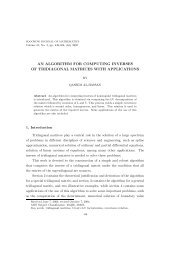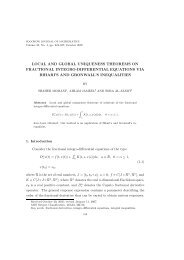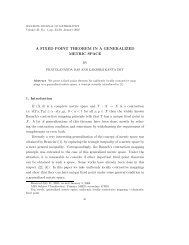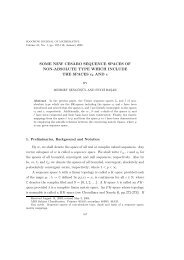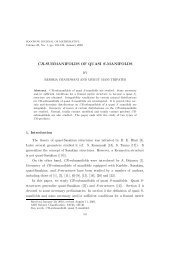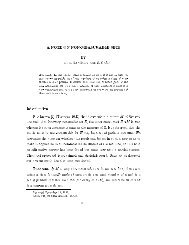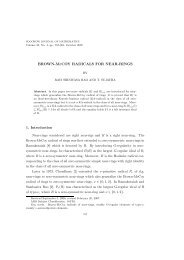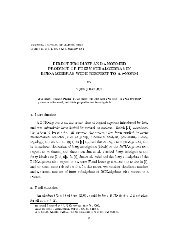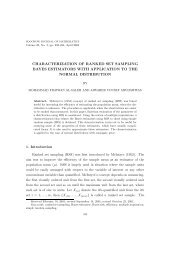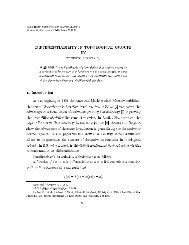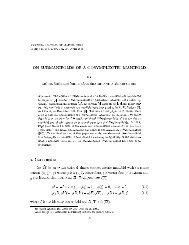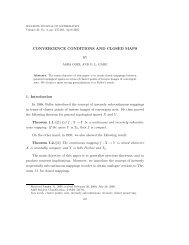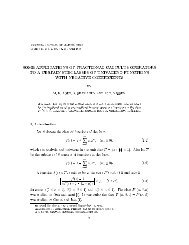uniqueness theorem for meromorphic functions concerning ...
uniqueness theorem for meromorphic functions concerning ...
uniqueness theorem for meromorphic functions concerning ...
Create successful ePaper yourself
Turn your PDF publications into a flip-book with our unique Google optimized e-Paper software.
246 SUBHAS S. BHOOSNURMATH, MILIND N. KULKARNI AND VAISHALI PRABHUThus, put c = 1 + 1 b, we deduce from Lemma 1, that(T(r,f) ≤ N(r,f) + (k + 1)N r, 1 )+ S(r,f),fT(r,f) ≤ (k + 1) {2 − [Θ(0,f) + Θ(∞,f)]} T(r,f) + S(r,f)≤ (k+1) {4−[Θ(0,f)+Θ(0,g)+Θ(∞,g)+Θ(∞,f)]} T(r,f)+S(r,f),and hence{[Θ(0,f) + Θ(0,g) + Θ(∞,g) + Θ(∞,f)] − 4k + 3 }T(r,f) ≤ S(r,f), (9)k + 1which is a contradiction as we have by our hypothesis that[Θ(0,f) + Θ(0,g) + Θ(∞,g) + Θ(∞,f)] ≥ 4k + 7k + 3 .There<strong>for</strong>e if a = b and b ≠ 0, then b ≠ −1 is the only possibility.Case 2. b ≠ 0 and a ≠ b.From (8), we seeg (k) − 1b(f (k) − 1) = g(k) + a − b ≠ 0.bFrom Lemma 1, we deduce that(T(r,g) ≤ N(r,g) + (k + 1)N r, 1 )+ S(r,g),gT(r,g) ≤ (k + 1) {2 − [Θ(0,g) + Θ(∞,g)]}T(r,g) + S(r,g)≤ (k + 1) {4 − [Θ(0,f) + Θ(0,g) + Θ(∞,g) + Θ(∞,f)]}T(r,g) + S(r,g),and hence{[Θ(0,f) + Θ(0,g) + Θ(∞,g) + Θ(∞,f)] − 4k + 3 }T(r,g) ≤ S(r,g), (10)k + 1which is a contradiction to our hypothesis.Case 3. a ≠ 0 and b = 0. From (8), we get1f (k) − 1 = ag (k) − 1 ,f (k) = 1 a g(k) + a − 1a ,



